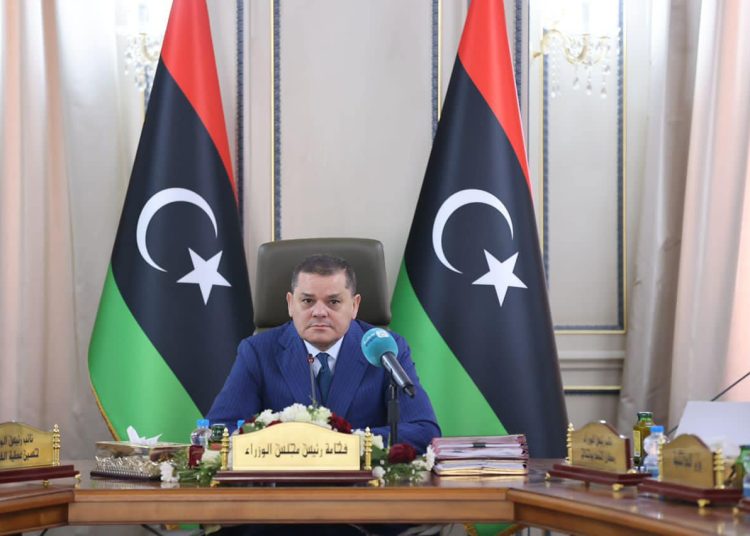Incumbent caretaker Libyan Prime Minister Abd Alhamid Aldabaiba has continued his populist drive in an effort to buy his political future and remain in office with a spree of state handouts.
At today’s tenth ordinary cabinet meeting of 2022, Aldabaiba announced:
- The start of payment of the Ministry of Interior, University, and higher education salaries at the new increased rates.
- The start of payment of the allowance for those who recite the whole holy Koran from memory
- The start of payment of state pensions at the new increased rate
- The start of payment of salaries to the health sector from August after the completion of the matching of their data
- The start of payment of the university and higher education allowance of LD 750
- The continuation of the payment of all state sector salaries and those working in the so-called faltering (bankrupt) state companies
- The continuation of matching of all data by the Ministry of Finance until the new unified state sector salaries grading system is complete
- The continuation of work on granting housing loans for youth through the activation of the (state) Investment bank
- The continuation of the payment of the marriage allowance
- The start of the import of (subsidised) animal feed for livestock breeders
Analysis
Aldabaiba continues to enshrine the centralised rentier state with populist handouts
No sooner has Libya’s oil production and export has restarted than caretaker Prime Minister Aldabaiba restarting his populist handouts at the expense of the state coffers.
Aldabaiba buying power?
Critics accuse him of trying to solidify his position in power in the face of parliament’s vote of no confidence in him and his government and in an effort to prevent parliament’s appointee, Fathi Bashagha, from becoming effective prime minister.
Revealing his state handouts at today’s tenth ordinary cabinet meeting, Aldabaiba announced the continuation or the launch of ten state handouts. However, there was no talk of rationalisation or of an overarching economic and financial policy.
Aldabaiba is determined to spend his way to remaining PM, and hopefully winning the next election – when or if an election date is ever announced.
No serious effort into dismantling the Qaddafi era rentier welfare system
Aldabaiba made no announcements on planned government cuts, savings or new non-oil sources of revenues to diversify Libya’s economy and create new alternative revenues. He made no announcements on how to reduce the footprint of the state sector in the Libyan economy and free the private sector to compete and create new revenues. Aldabaiba has shown no serious effort into dismantling the Qaddafi era rentier welfare system, but on the contrary, he has used the state system to its fullest to try to solidify his political position.
No opposition from the CBL?
Aldabaiba has been able to do all this with it seems no opposition from the Governor of the Central Bank of Libya (CBL). Indeed, critics say Aldabaiba’s sacking of National Oil Corporation chairman, Mustafa Sanalla, has sent a warning to CBL Governor El-Kabir that if he opposes Aldabaiba’s spending spree, he too might be replaced in a political deal with parliament.
Economy needs deep structural reform
Critics are concerned that Aldabaiba’s short term populist spending is doing nothing to enact the deep structural reforms the World Bank and IMF have advised. These are the reforms the Libyan economy needs after forty-odd years of Qaddafi centralisation and failed socialist welfare economics.











